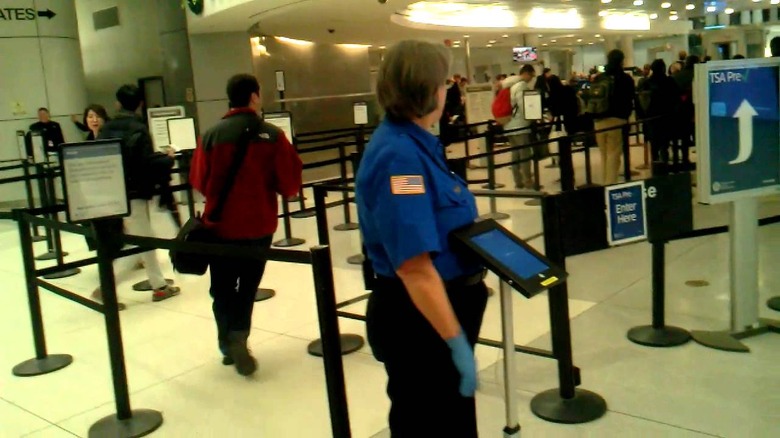New TSA Rules Require Separate Screening Of All Electronics Bigger Than A Cellphone
The Transportation Security Administration, a multi-billion-dollar government agency that has yet to catch a real live terrorist, is significantly expanding screening of electronic devices at its checkpoints. It will now require "all electronics larger than a cellphone" to be removed from bags and placed uncovered in a plastic bin, much like you do now with laptops.
The rules cover things like iPads, e-readers, portable DVD players, and handheld game consoles. It's unclear what happens to things like cameras or any other electronic device you might bring onto a plane. A TSA spokesperson would also not confirm to BGR exactly where phablets like the Galaxy Note will fall in this new system.
The rules have already been trialed at 10 airports around the US, and will be expanded to every US airport in the coming months. TSA plans to ease the transition period by stationing agents in front of the X-ray machines to "verbally assist" customers in their decision-making.
The TSA admits that the new measures are likely to cause delays. Air Canada and WestJet have advised customers to arrive two hours earlier for flights to the US, thanks to the enhanced screening measures.
The enhanced screening measures come into effect months after the US imposed a laptop ban on flights originating in the Middle East. That ban has since been eased in favor of the new rules. The threat being addressed by the laptop ban was a bomb disguised as an electronic device; presumably, that's the same threat that's being addressed here.
In 2015, a leaked TSA report showed that during routine security tests, DHS officials were able to smuggle bombs and weapons past TSA checkpoints 95% of the time. With any luck, the new security measures might lower that to 94%, or — dare to dream! — even 93%.
